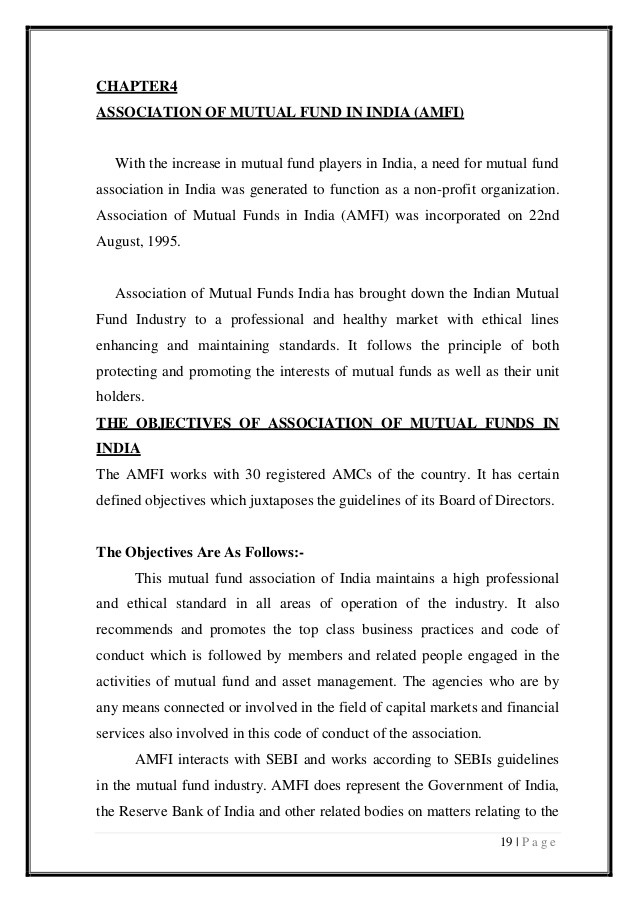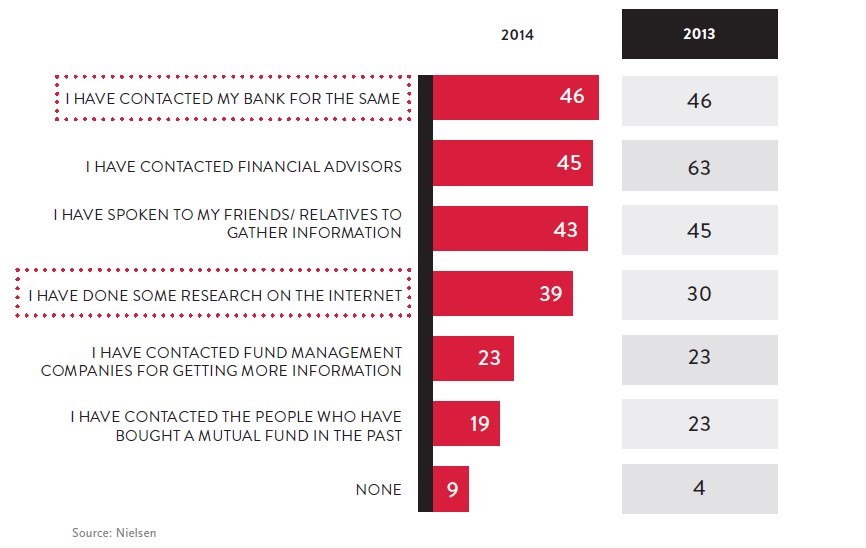Role of mutual fund advisers All about mutual funds of India
Post on: 17 Сентябрь, 2015 No Comment

Author: admin August 25, 2014
I recently had the good fortune of reading an article on similar topic. It was well-written and contained sound, practical advice. That article motivated me to express my views through this post.
Most advisers in India sell/advise equity funds exclusively or predominantly and hence my thoughts on the role of advisers are influenced by what we have. Without commenting on the ideal role of the mutual fund adviser community, I intend to offer my views on the most basic and minimal expectation I have from them.
A mutual fund adviser is an agent of the investor and is expected to act in the best interest of an investor. Investors choose equity funds, over other non-equity funds, for potential higher returns. By investing in equity, they take risk higher than debt securities in the hope of generating higher returns. Theoretically speaking, investors do not need any financial intermediary to invest in equity funds. By financial intermediary, I refer to fund manager and fund advisor both. Investors may simply invest in a portfolio identical to a broad based index like BSE Sensex or NIFTY. One of the simplest ways is investment in Index Funds. These funds offer equity participation without the involvement of any financial intermediary (no fund manager and no equity mutual fund advisor).
However, funds managed by smart fund managers have consistently given better returns than index funds. This is especially true for mutual funds in all developing economies. This explains the need and role of the first intermediary between the equity fund investors and the fund. This intermediary is the fund manager. Investors prefer equity funds managed by a fund manager to index funds in hope of fund managers beating the market returns handsomely.
While the returns provided by these actively managed funds are higher than index funds in most cases, there is wide difference in their returns. The presence of too many actively managed funds and their varying performance gives birth to an obvious question — which actively managed equity fund to invest? This choice is not as easy as it may sound. India has 40+ AMCS offering mutual funds schemes with most of them offering more than 10 actively managed equity mutual funds each. For an average investor, this is near impossible task of choosing from over 400 equity funds. While, broadly all of these are equity Scheme, they differ widely in their investment objective and portfolio construction. Not only these funds have varying returns potential, they have significantly varying downfall risks. Apart from the market factors, the performances of fund managers affect the performance of these funds. This is where the role of mutual fund advisers emerges.
Fund adviser is expected to select fund(S) which is not only appropriate to an investors risk appetite but has the potential to deliver return better than most other mutual fund schemes over the holding horizon of the investors. In summary, in my view, the role of an equity fund adviser is at least to
1. Select fund(s) that

- matches investors risk tolerance, his/her understanding of market fluctuations and investment tenure
- is expected to deliver better than average performance in its own category with in the equity space.
2. Prepare, at each year end, a comparative statement of the schemes performance vis a vis the peers showing that his chosen schemes have performed in line with point 1 above
Before I close, there is no single way to look at the role of adviser. This post merely expresses my expectation from my adviser.














